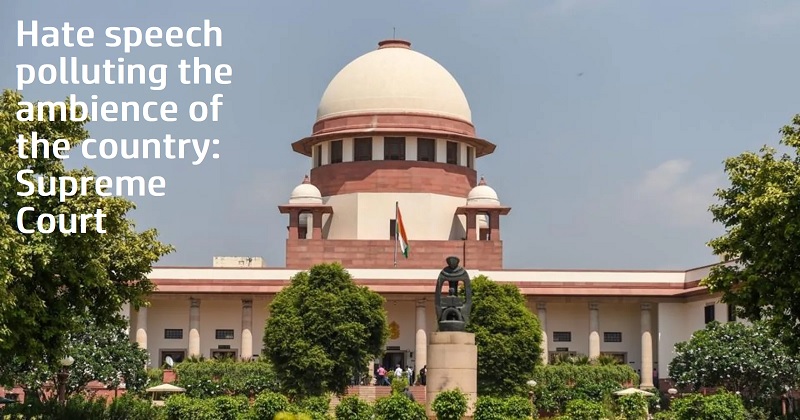
The Supreme Court stated on Monday that a PIL petitioner who brought up the problem of ‘official inaction’ regarding ‘hate speeches’ may be correct in asserting that such statements degrade the ambience of the nation and should be stopped.
The comments were made by India’s Chief Justice U U Lalit during a hearing on a petition alleging that hate speeches were made against the minority community ‘to win the majority Hindu votes, to grab power at all posts, to commit genocide and make India a Hindu Rashtra before 2024 elections’ and that various crimes were committed on this account.
The CJI, who presided over a two-judge panel that included Justice S Ravindra Bhat, however, claimed that the petition was ‘vague’ and lacked any specifics or precise information. ‘We don’t even know the specifics of those crimes, what their status is, what you think, who the people are who are engaged, whether any crimes were reported or not, etc. You may be correct in thinking that hate speech is tainting everyone’s perception of the world. This kind of scary petition under Article 32 cannot be granted, even if you may have every reason to believe it should be, CJI Lalit added, questioning if the petitioner would need the support of an amicus curiae.’
According to petitioner Harpreet Mansukhani, ‘hate speech has been turned into a lucrative business.’ Mansukhani asserted that she had evidence that a political party had funded the Hindi film ‘The Kashmir Files,’ which depicts the forced emigration of Kashmiri Pandits and has been charged with inciting anti-Muslim animosity.
The Bench made the initial observation that regular criminal law proceedings must be started on a case-by-case basis in situations of hate speech. The CJI stated, ‘We have to determine who is involved and who is not.’
However, the petitioner argued that it was too late to prevent such tragedies and that the court should issue orders instead. When a hate remark is delivered, she compared it to an arrow that never comes back. The petitioner responded that she will file an affidavit outlining particular incidents in response to the Bench’s request for some ‘immediate instances,’ which stated that a court of law needed factual foundation in order to take cognizance. On November 1, the court will hear the PIL.
The governments of Delhi and Uttarakhand were also ordered to submit affidavits on the actions taken in connection with ‘Dharam Sansad’ events where allegedly hateful comments were made by a bench of Justices D Y Chandrachud and Hima Kohli.

Post Your Comments